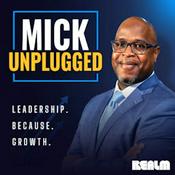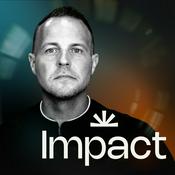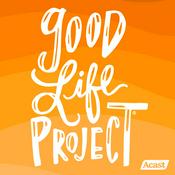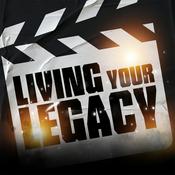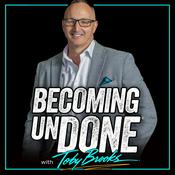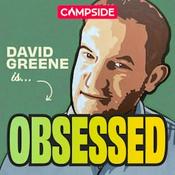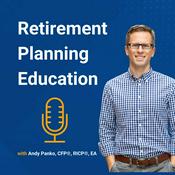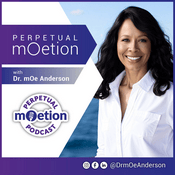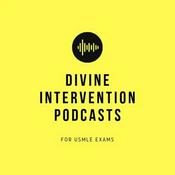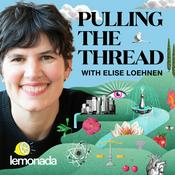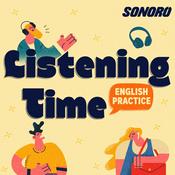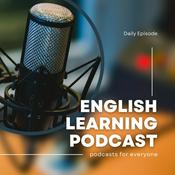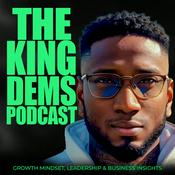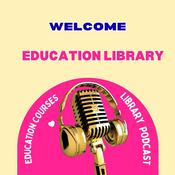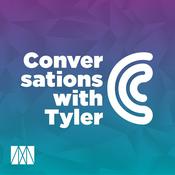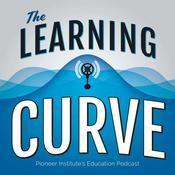In It: Raising Kids Who Learn Differently
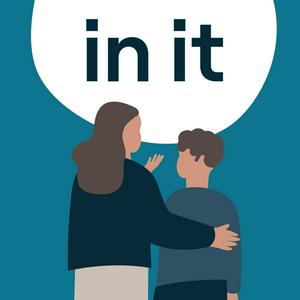
125 episodes

Building a village for neurodivergent families (with Jessica Shaw of the “Everyone Gets A Juice Box” podcast)
10/23/2025 | 31 mins.
In this final episode of In It, we talk with Jessica Shaw, who’s launching a new podcast called TBD — it’s about the beautiful roller coaster that is parenting neurodivergent kids. As a mom to two teenage daughters, Jessica reflects on what she wishes she’d known earlier, what she’s learned along the way, and why finding a community of parents who truly get it can be life-changing. To our audience: We’ve loved every minute of making this show. Thank you for listening, for sharing, and for being part of this beautiful community. We’re so grateful you’ve been in it with us.For more on this topic: Read: How to find your parent support networkRead: Asking friends and family for helpTimestamps:(06:30) Why a community of parents who get it is so important(09:03) Managing your child’s care with a co-parent(15:30) An actually helpful bit of parenting advice(24:32) Gretchen and Rachel’s biggest takeaways from In ItWe love hearing from our listeners! Email us at [email protected]. Understood.org is a nonprofit organization dedicated to empowering people with learning and thinking differences, like ADHD and dyslexia. If you want to help us continue this work, donate at understood.org/give Hosted by Simplecast, an AdsWizz company. See pcm.adswizz.com for information about our collection and use of personal data for advertising.

When teachers say your child is “too smart” for special ed services
10/09/2025 | 25 mins.
When a teacher says your child is “too smart” for special education services, it doesn’t feel like a compliment — it’s more like a roadblock!Parent advocate Danielle Ward joins us to unpack what this response often means and how it might signal twice exceptionality, where giftedness masks real struggles. She shares practical strategies for moving forward when the system says “no,” even when your child clearly needs support.We also break down what legally qualifies a student for an IEP, when a 504 plan might be a helpful tool, and how to push through to get your child the support they need.For more on this topic: Listen: IEPs: The difference between IEPs and 504 plansRead: All about twice-exceptional studentsBook: Differently Wired Kids, by Debbie Reber (TILT Parenting)Resource: School Avoidance AllianceTimestamps:(05:00) What is 2E (twice exceptionality)?(09:20) Who is legally eligible for an IEP?(13:04) How 504 plans can support your child(18:47) Understanding academic vs. educational impactFor a transcript and more resources, visit the In It page on Understood.org. We love hearing from our listeners! Email us at [email protected]. Understood.org is a nonprofit organization dedicated to empowering people with learning and thinking differences, like ADHD and dyslexia. If you want to help us continue this work, donate at understood.org/give Hosted by Simplecast, an AdsWizz company. See pcm.adswizz.com for information about our collection and use of personal data for advertising.

How to make mornings easier for ADHD brains
9/25/2025 | 24 mins.
Mornings can be chaos, especially when neurodivergence is part of the mix — for your kids or for you. This week, we’re joined by Jon Zeitlin from HabitCoach, who’s been in the thick of it. Jon and his son both have ADHD, so they’ve had to build routines that work for brains like theirs. Spoiler: It starts the night before.HabitCoach helps neurodivergent kids build lasting habits through personalized coaching. Check them out!Related resources8 ways to make school morning routines easierFor neurodivergent parents: Podcast “Tips from an ADHD Coach” on finding your morning momentumDownload: Picture schedules for daily routinesTimestamps(06:17) What’s on your morning to-do list?(08:37) Why is the morning routine harder for kids with ADHD or executive function challenges?(15:51) Strategies to make mornings easierFor a transcript and more resources, visit the In It show page on Understood.org. We love hearing from our listeners! Email us at [email protected]. Understood.org is a nonprofit organization dedicated to empowering people with learning and thinking differences, like ADHD and dyslexia. If you want to help us continue this work, donate at understood.org/give Hosted by Simplecast, an AdsWizz company. See pcm.adswizz.com for information about our collection and use of personal data for advertising.

When kids say “I’m stupid”: How to rebuild confidence and self-esteem
9/11/2025 | 23 mins.
As a parent, it’s heartbreaking to hear your child say “I’m stupid.”Whether it comes after a tough day at school, a frustrating homework session, or a comment that hit the wrong nerve, that feeling can really stick. Dr. Kristin Carothers joins us to unpack where this kind of negative self-talk comes from. What’s happening beneath the surface? And how can adults respond in ways that build confidence — not pressure?For more on this topicOpportunity Gap: Supporting confidence in kidsHow to rebuild self-esteem in the new school yearWhat to say when kids are hard on themselvesTimestamps(02:50) How parents can respond to negative self-talk(06:08) What not to say to your child(14:30) Modeling positive affirmations at homeFor a transcript and more resources, visit the In It show page on Understood.org. We love hearing from our listeners! Email us at [email protected]. Understood.org is a nonprofit organization dedicated to empowering people with learning and thinking differences, like ADHD and dyslexia. If you want to help us continue this work, donate at understood.org/give Hosted by Simplecast, an AdsWizz company. See pcm.adswizz.com for information about our collection and use of personal data for advertising.

How a teen with dyslexia found her voice
8/28/2025 | 20 mins.
What happens when we stop talking about kids with learning differences — and start listening to them? Kids are the experts in their own experience. When we truly listen, we all learn.Today we’re joined by 15-year-old Caris, a smart and determined teen with dyslexia, and her dad, Kevin. In this honest conversation, they talk about the everyday challenges and small wins of growing up with a learning difference. Caris shares what she wishes more people understood about dyslexia and how she’s found confidence in unexpected places. And she introduces “Through My Eyes,” a new digital experience from Understood.org that lets you step into her world.Want to learn more about her story? Explore Through My Eyes at Understood.org and help others see your child the way you do.For more on this topicSigns of dyslexia in high schoolSigns of dyslexia in grade schoolPodcast: What if I think my child might have dyslexia?Timestamps(01:50) Growing up with dyslexia(06:19) Facing stigma around learning disabilities(11:17) How “Through My Eyes” reframed their experience(13:06) Telling friends about her diagnosisFor a transcript and more resources, visit the In It show page on Understood.org. We love hearing from our listeners! Email us at [email protected]. Understood.org is a nonprofit organization dedicated to empowering people with learning and thinking differences, like ADHD and dyslexia. If you want to help us continue this work, donate at understood.org/give Hosted by Simplecast, an AdsWizz company. See pcm.adswizz.com for information about our collection and use of personal data for advertising.
More Education podcasts
Trending Education podcasts
About In It: Raising Kids Who Learn Differently
Listen to In It: Raising Kids Who Learn Differently, Mick Unplugged and many other podcasts from around the world with the radio.net app

Get the free radio.net app
- Stations and podcasts to bookmark
- Stream via Wi-Fi or Bluetooth
- Supports Carplay & Android Auto
- Many other app features
Get the free radio.net app
- Stations and podcasts to bookmark
- Stream via Wi-Fi or Bluetooth
- Supports Carplay & Android Auto
- Many other app features


In It: Raising Kids Who Learn Differently
download the app,
start listening.
